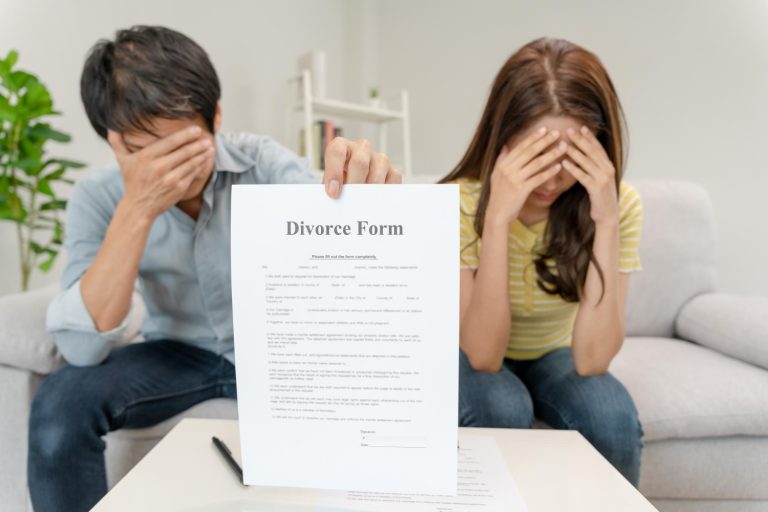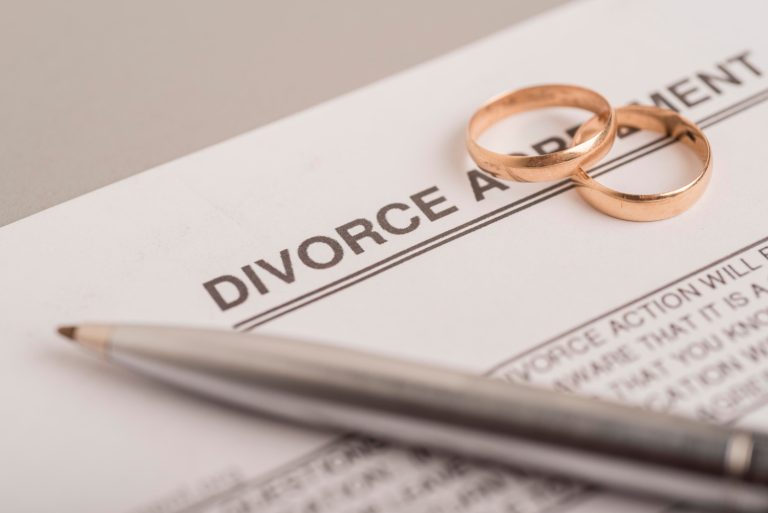When a divorce case reaches the term “disposed” in Texas, it can leave many feeling confused and anxious. At MenduniMartindill, we understand these feelings and are here to clarify what this legal term truly means for your case. Whether you’re just starting the divorce process or nearing its end, understanding the term “disposed” can provide clarity and peace of mind. Let us explore this crucial aspect together and help you navigate your divorce journey smoothly.
From the point of view of a divorce case in Texas, “disposed” means the case is closed and all issues have been resolved. This can happen through trial, settlement, or other final court orders. After disposition, no further actions are needed from the court.
Understanding Divorce Case Disposition
Understanding divorce case disposition means knowing the final legal resolution, which could significantly impact various aspects of people’s futures.
When getting a divorce, decisions are made about important issues like splitting assets, child custody, visitation rights, and financial support. The court will make the final decision after looking at all the information and evidence from both sides.
It’s important to know that how a divorce ends can be very different for each case. Primarily things like how long the marriage lasted, the financial situation of each person, and what’s best for any children involved will affect the final decision.
Everyone going through a divorce should understand the possible outcomes. It’s a good idea to get legal advice to protect your rights and interests. Knowing what to expect can help you handle the legal process and reach a fair outcome.
What ‘Disposed’ Means in Texas Divorce
In Texas divorce cases, ‘disposed’ signifies that the case is resolved, either through settlement or a court decision.
When a divorce case is finished, it means the court has settled all issues like dividing property, deciding on child custody, and setting spousal support. This happens after the court issues a final judgment, which can come from a trial or a mutual agreement between both parties.
Once the case is concluded, the couple is officially divorced and must follow the court’s decisions. It’s important for people getting divorced in Texas to know what it means for their case to be finished and make sure they meet all legal requirements. Not following the final judgment can lead to legal trouble, so seeking legal advice during the divorce process is very important for a smooth outcome.
Finalizing a Divorce: Case Disposition
Finalizing a divorce, or case disposition, can reveal that 70% of divorce cases in the U.S. are settled out of court, streamlining the process for many couples.
You know, this means coming to an agreement on important things like splitting up property, deciding who gets custody of the kids, and whether one person needs to support the other financially. After agreeing, you need to send this agreement to the court. The court checks to make sure it’s fair for both sides. If everything looks good, the court approves it, and your divorce becomes official.
The court might also give orders about child support, visitation, and other divorce-related issues. It’s important to follow these court orders and meet any deadlines to make sure the process goes smoothly. Once the divorce is final, both people can start fresh and even date new people if they want. It’s a good idea to have a lawyer help you through the divorce to make sure your rights are protected and that you get a fair deal.
Disposed Status in Texas Divorces
In Texas, a divorce case reaching disposed status indicates it has been officially resolved, marking the end of the legal proceedings.
The judge has made a final decision on the divorce, covering things like splitting property, child custody, and alimony. Once the case is settled, it is no longer active in the court. The people involved will get a final judgment that details the divorce agreement. Usually, this decision is final and binding, unless there are reasons to appeal.
Those involved must follow the terms of the agreement, such as paying alimony or sticking to a visitation schedule. It’s a good idea for anyone going through a divorce in Texas to get legal advice to understand their rights and duties. When a case is marked as disposed, it means the divorce is finalized and everyone can move on with their lives separately.
Steps After Divorce Case is Disposed
After a divorce case is disposed of, compliance with the court’s rulings on asset division, child custody, and support payments is mandatory for both parties.
You must follow all the rules set in the final divorce agreement. If either person doesn’t follow them, legal action can be taken to enforce the court’s decision.
Both ex-spouses should update any important documents after the divorce, like wills, insurance policies, and property titles. This makes sure the right people are listed and everything is correctly handled.
It’s also important for both people to start moving on and rebuilding their lives after the divorce. By definition, this might mean getting therapy or counseling to deal with emotions, and looking for new opportunities for personal growth and happiness.
You may also need to keep communicating with each other about ongoing issues like co-parenting or financial agreements. Open and respectful communication can help avoid future problems and make the transition to separate lives easier.

Summing it All Up
In Texas, when a divorce case is disposed of, it means that the case has been resolved and finalized by the court.
What MenduniMartindill is recommending to prepare for is, this could involve a settlement agreement reached by the parties, a decision made by the judge after a trial, or the case being dismissed. Once a divorce case is disposed of, the legal proceedings have come to an end and the marriage is officially dissolved.
References
- Texas Jurisprudence by West Publishing Co., Texas.
- Divorce in Texas: The Legal Process, Your Rights, and What to Expect by Janice Moser, Nolo.
- Texas Family Code by Texas Legislature.
Trending Articles
Understanding the meaning of “disposed” in a divorce case can give you clarity about where your legal process stands. For those exploring divorce options or looking for support services, the following resources may be helpful.
- Read more about the most affordable online divorce services available in 2025.
- Learn more about divorce services for couples with children in Florida.






